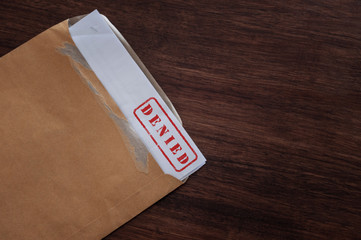Auto insurance can be expensive and oftentimes inconvenient. However, being covered is important not only so that you follow the law, but also to ensure that you are afforded certain financial protection in case of an accident. If your or another driver’s insurance company denies your car accident claim it can be frustrating, but you have several options. Work with an experienced Kane County car accident lawyer for more information on your legal rights.
What Types of Car Insurance Claims Exist?
Before you can understand what to do when an insurance company denies your claim, it is important to understand what type of claim you are filing and the chances of it getting denied.
A first-party claim is one that you file against your own insurance policy. You pay for auto insurance not only to protect you if you cause an accident but also to act as compensation and security if other circumstances arise. You will generally file a first-party claim if you were responsible for the accident, if the other driver is uninsured, or if you want to use your personal injury protection coverage.
A third-party claim is a claim that you file against another driver’s insurance. When the other driver is liable for the accident, you can request compensation through their insurance provider in the form of a claim.
Third-party claims get denied more often than first-party claims, as another driver’s insurance provider does not have a relationship with or legal obligation to you. Your own insurance company has a contract with you and is required to abide by the agreement of your policy.
What Can I Do if the Insurance Company Denies My Car Accident Claim?
When you receive a letter stating your claim has been denied, it should briefly outline the reasons for the denial. The action you take will depend on the reasons they give.
If your first or third-party claim gets denied you should evaluate if you have additional evidence to give. Oftentimes insurance companies say that the individual did not provide enough evidence to support the claim. If you have access to new evidence after submitting the claim or can acquire additional information, do so. Important pieces of evidence can include pictures of the accident, videos, the police report, medical records, bills, expert testimony, quotes to repair damage, and more.
You can also appeal a claim denial. For a first-party claim appeal, look into your policy guidelines to find the steps required and deadlines to meet. For a third-party appeal, check their rules on how to file an appeal with their internal appeals department.
You can also bring in outside help to deal with an insurance claim denial. Working with an injury attorney can prove beneficial as they have experience dealing with filing claims and appeals, communicating with insurance providers, and negotiating settlements. Reach out to a skilled lawyer today.


